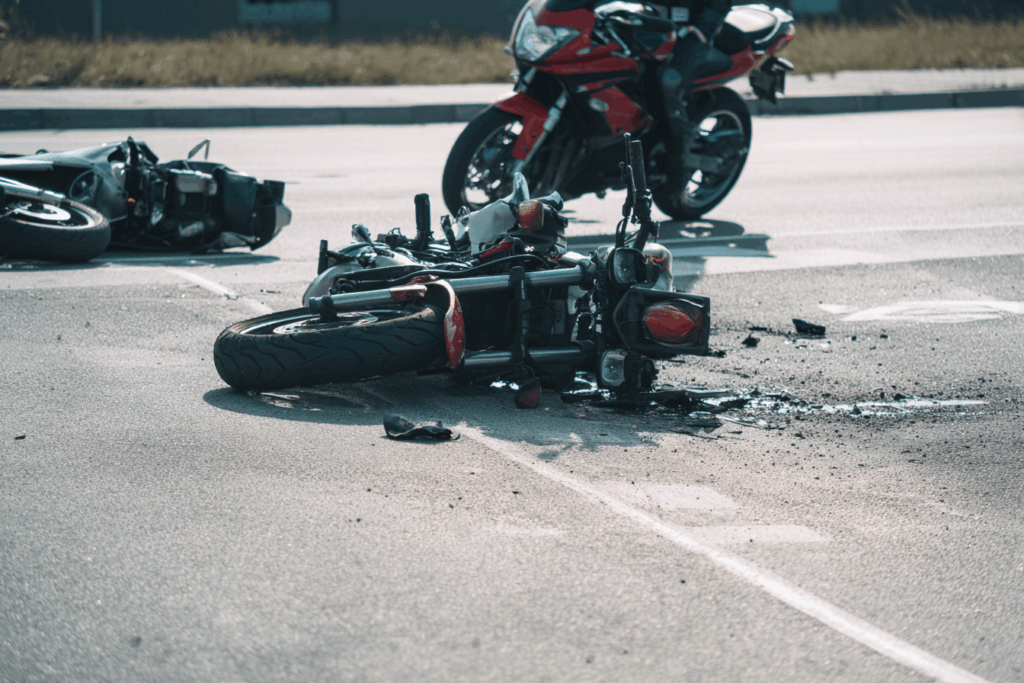
You weren’t wearing a helmet. The crash happened. Now you’re wondering if you just lost your shot at getting paid. Here’s the truth: you can still file a claim. But the other side will try to use it against you, and that’s exactly why you need someone in your corner who knows how to fight back.
Motorcycle accidents in Tampa don’t play fair. One second you’re riding, the next you’re facing medical bills, a banged-up bike, and an insurance company that’s already looking for reasons to pay you less. Not wearing a helmet gives them ammunition, but it doesn’t disqualify you from getting compensated for your injuries.
Florida’s laws are tricky. The helmet rules depend on your age and insurance coverage. How much you can recover depends on who’s at fault and how the crash actually happened. And the clock is ticking: you’ve got two years to file, or you lose your chance entirely.
If you got hurt in a motorcycle crash and weren’t wearing a helmet, don’t assume you’re out of options. With the right legal team, you can still fight for what you’re owed.
Florida’s Helmet Law: Who Has to Wear One?
Florida doesn’t make every rider wear a helmet, but there are rules:
- Under 21? You must wear a helmet every time you ride. No exceptions.
- Over 21? You can skip the helmet only if you carry at least $10,000 in medical coverage specifically for motorcycle injuries.
- No coverage? Helmet required, no matter your age.
Here’s where it gets messy: even if you were legally allowed to ride without a helmet, insurance companies will still try to blame your injuries on that choice. They’ll argue your head injury wouldn’t have been as bad if you’d been wearing protection. That’s why having someone who knows how to counter these arguments is critical.
How Not Wearing a Helmet Affects Your Claim
Let’s be real: riding without a helmet makes your case harder. Insurance adjusters see it as an easy way to cut down what they owe you. But harder doesn’t mean impossible.
Florida’s Comparative Negligence Rule
Florida follows what’s called “comparative negligence.” Translation: even if you made a mistake, you can still recover money. The catch? Your payout gets reduced by whatever percentage you’re found at fault.
Here’s an example:
- The other driver ran a red light and hit you
- You suffered a traumatic brain injury
- The insurance company argues you’re 30% responsible because you weren’t wearing a helmet
- Your total damages are $100,000
- You’d recover $70,000 instead of the full amount
The key is proving exactly what injuries came from the crash itself versus what might have been prevented by a helmet. Head injuries are the obvious battleground, but broken bones, road rash, and internal injuries have nothing to do with helmet use.
What You Can Still Recover
Not wearing a helmet doesn’t block you from seeking compensation for:
- Medical bills and ongoing treatment
- Lost wages from missing work
- Property damage to your bike
- Pain and suffering
- Future medical expenses
The goal is to show the other driver caused the accident. Their negligence put you in danger. Whether or not you wore a helmet doesn’t change the fact that they’re responsible for the crash.
Building Your Case When You Weren’t Wearing a Helmet
Winning this fight comes down to evidence and strategy. Here’s what matters most:
Prove Which Injuries Aren’t Related to the Helmet
Insurance companies will try to pin everything on your decision to skip the helmet. Don’t let them. Many injuries happen regardless of head protection:
- Broken arms or legs
- Spinal damage
- Road rash and lacerations
- Internal organ injuries
- Fractured ribs
Get thorough medical evaluations. Document everything. The more you can separate helmet-related injuries from other damages, the stronger your position.
Show the Other Driver Was at Fault
This is where the case gets won or lost. You need to prove the other driver caused the crash through:
- Running red lights or stop signs
- Failing to yield
- Distracted or impaired driving
- Speeding or reckless behavior
- Failing to check blind spots
Critical Evidence to Gather:
- Police reports from the scene
- Witness statements
- Photos of the crash site
- Traffic camera footage
- Your own account of what happened
The faster you collect this evidence, the better. Memories fade. Witnesses disappear. Physical evidence gets cleaned up. Don’t wait.
Dealing with Insurance Companies
Insurance adjusters are not your friends. Their job is to save their company money, which means paying you as little as possible. When you weren’t wearing a helmet, they see dollar signs, just not in your favor.
What Insurance Companies Will Try
Claim your injuries are your fault: They’ll argue that wearing a helmet would have prevented your injuries, even for damage that has nothing to do with head protection.
Offer a quick, low settlement: They know you’re dealing with medical bills. They’re counting on you being desperate enough to accept pennies on the dollar.
Twist your words: Anything you say can be used to reduce your payout. They’ll ask leading questions trying to get you to admit fault.
Delay, delay, delay: The longer they drag it out, the more pressure you feel to settle for less.
Why You Need Someone Fighting for You
Handling insurance companies alone while you’re recovering is a losing game. You’re hurt, stressed, and facing people who do this for a living. They know every trick to minimize what they pay out.
When you have experienced legal representation:
- All communication goes through your attorney
- Evidence gets preserved and properly documented
- Medical records are reviewed by experts
- Negotiations happen with someone who knows the real value of your case
- The statute of limitations doesn’t run out while you’re trying to figure out what to do
Time Is Not on Your Side
Florida gives you two years from the date of your accident to file a personal injury claim. Miss that deadline, and you lose your right to compensation entirely. No extensions. No second chances.
Two years sounds like a long time until you’re dealing with:
- Multiple doctor appointments
- Physical therapy
- Insurance back-and-forth
- Getting your bike repaired
- Just trying to get back to normal life
Before you know it, months have passed. Don’t let the clock run out on getting what you deserve.
You Can Still Win This Fight
Not wearing a helmet complicates things. It gives the insurance company ammunition. It might reduce your final payout. But it absolutely does not mean you’re out of options.
The other driver caused the crash. You got hurt. You have bills to pay and a life to rebuild. That doesn’t change based on what was or wasn’t on your head.
Don’t Go This Alone
If you were in a motorcycle accident in Tampa and weren’t wearing a helmet, the insurance companies are already building their case against you. Every day you wait makes their job easier and yours harder.
Check with Chris. We know the insurance companies’ playbook because we used to work with them. We know every trick they’ll try to use your lack of a helmet against you, and we know exactly how to counter it. Consultations are always free, and we don’t get paid unless you do.
Call Chris Ligori & Associates now at 813-223-2929. Let’s talk about your case and get you the compensation you deserve.
Legal Disclaimer: This article does not constitute legal advice. Every motorcycle accident case is different, and the outcome depends on the specific facts and circumstances involved. For advice about your particular situation, contact an experienced personal injury attorney who can review the details of your case.

